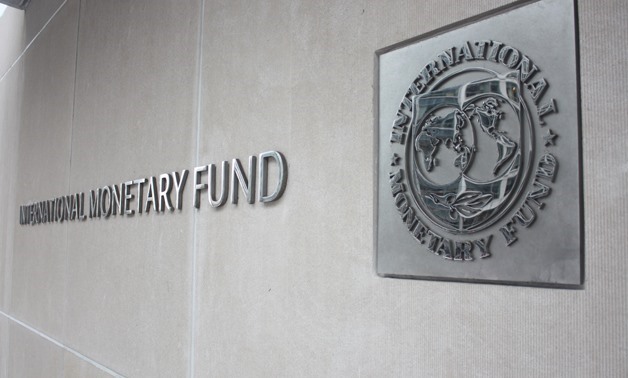
International Monetary Fund (IMF) - CC Wikimedia
CAIRO - 27 October 2022: The International Monetary Fund (IMF) staff and Egypt announced reaching a staff-level agreement on comprehensive economic policies and reforms that will be supported by a $3 billion Extended Fund Facility (EFF) arrangement for a 46-month period.
The new financing aims to protect macroeconomic stability and debt sustainability, improve Egypt's resilience to external shocks, strengthen its social safety net, and intensify reforms that support private sector-led growth and job creation.
The IMF arrangement is expected to catalyze a large multi-year financing package, including about $5 billion in the 2022/2023 fiscal year, which reflects broad international and regional support for Egypt, according to the IMF’s statement.
The Egyptian authorities have also requested funding under the newly established Resilience and Sustainability Facility (RSF), which could provide up to an additional $1 billion to Egypt.
During October 4-27, 2022, an IMF team, led by Ivanna Vladkova Hollar, Mission Chief for Egypt, held meetings in Washington DC and Cairo to finalize discussions on IMF support for Egypt and the authorities’ comprehensive economic reform program.
Commenting on the deal, Hollar said that the new EFF aims to provide Egypt with balance of payments and budget support while catalyzing additional financing from Egypt’s international and regional partners to maintain economic stability, address macroeconomic imbalances and spillovers from the war in Ukraine, protect livelihoods, and push forward deep structural and governance reforms to promote private sector-led growth and job creation.
“The agreement is subject to approval by the IMF’s Executive Board, which is expected to discuss the authorities’ request in December,” she noted.
Hollar stated that the program will include policies to unleash private sector growth including by reducing the state footprint, adopting a more robust competition framework, enhancing transparency, and ensuring improved trade facilitation.
The IMF's Mission Chief stated that the rapidly changing global environment and spillovers related to the war in Ukraine are posing significant challenges for countries around the world, including Egypt.
She praised the authorities’ recent actions to expand targeted social protection, implement a durable flexible exchange rate regime, and phase out the mandatory use of letters of credits for import finance, as well as their steadfast commitment to tackle needed macroeconomic adjustments and carry out an ambitious structural reform agenda amidst a challenging global backdrop.
The Central Bank of Egypt (CBE) announced, earlier Thursday, the issuance of
several decisions related to the exchange rate, interest rates and letters of credit for importing.
The decisions which were taken in an exceptional meeting included raising the Central Bank of Egypt’s (CBE) interest rates by 200 basis points or 2 percent, in an exceptional meeting.
The overnight deposit rate, overnight lending rate, and the rate of the main operation were raised to 13.25 percent, 14.25 percent, and 13.75 percent, respectively. The discount rate was also kept raised to 13.75 percent.
“The government’s fiscal policy under the EFF will be anchored to the reduction of general government debt and gross financing needs. Continued fiscal consolidation will be supported by the implementation of the government’s Medium-Term Revenue Strategy (MTRS) that aims to improve the efficiency and progressivity of the tax system. Social protection will continue to be strengthened including through the temporary extension of the emergency support to ration card holders and measures to protect the purchasing power of vulnerable wage earners and pensioners,” She said.
According to Hallor, the broad fiscal structural reforms will also aim to further improve the budget composition, strengthen governance, accountability, and transparency, and support climate mitigation goals.
Commenting on the CBE's decision to adopt a flexible exchange rate, she stated that it will boost Egypt’s competitiveness, and attract foreign direct investment, adding that it will be a cornerstone policy for rebuilding and safeguarding Egypt’s external resilience over the long term.
“The EFF will support the CBE’s efforts to improve the functioning of the foreign exchange market, increase foreign reserves, and further improve monetary policy transmission. Monetary policy, which will be firmly rooted in the CBE’s price stability mandate, will aim to gradually reduce inflation to within the CBE’s inflation target,” she added.
The authorities also plan to expand targeted social transfers and enhance spending on social assistance, health, and education. These reform measures will be critical to address long-standing constraints to Egypt’s higher, more sustainable, and more inclusive growth, she clarified.
“Egypt’s international and regional partners will play a critical role in facilitating the implementation of the authorities’ policies and reforms. Additional financing of about $5 billion is expected from multilateral and regional partners for FY2022/23, which will help strengthen Egypt’s external position,” Hollar said.
Comments
Leave a Comment